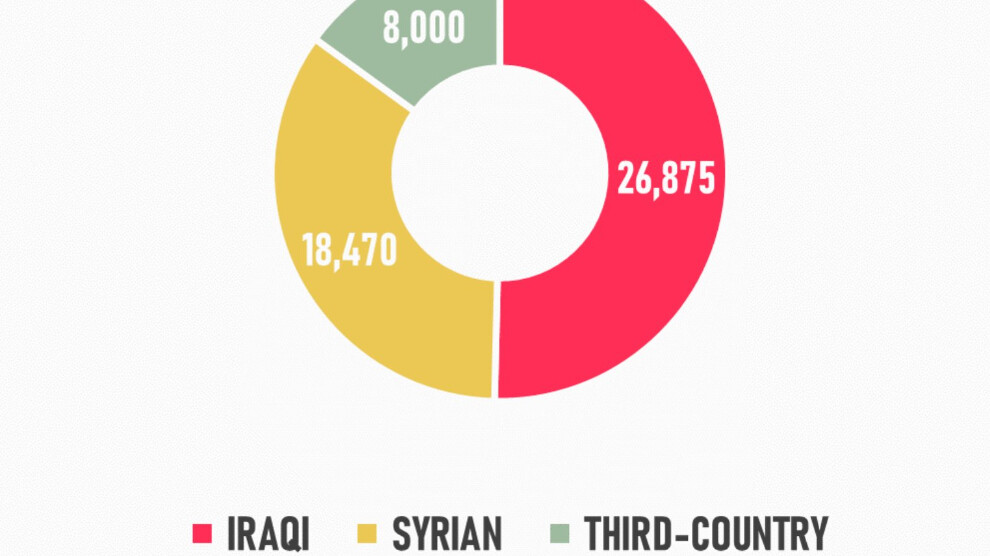More Iraqi nationals in Hol camp repatriated
Iraq's Ministry of Migration and Displacement announced the repatriation of 584 people from Hol camp, marking Iraq's first repatriation mission since October.
Iraq's Ministry of Migration and Displacement announced the repatriation of 584 people from Hol camp, marking Iraq's first repatriation mission since October.

The Iraqi population in Hol camp stands at 26,875, comprising over half of the total people staying in it, according to a report by the Rojava Information Centre (RIC).
The Iraqi Ministry of Migration and Displacement announced the repatriation of 584 people from Hol camp, marking Iraq's first repatriation mission since October.
Those leaving Hol camp will be sent to al-Jada camp in Iraq's Nineveh governorate. With this most recent repatriation mission, the total number of Iraqi citizens repatriated from Northern and Eastern Syria since 2017 has risen to 11,484. This includes those repatriated from prisons as well as camps.
A few days after Iraq's new government, under PM Mohammed Shia al-Sudani, was sworn in on 27 October 2022, the Minister of Migration and Displacement suspended the return of displaced Iraqis from Hol camp, citing the need for a more robust humanitarian and security mechanism.
While Iraq has now restarted repatriations, the security risks posed were made evident just a few days ago, when Iraq's Kurdistan Region Security Council announced the arrest of two ISIS members who came from Hol camp and had entered Iraq as part of a formal repatriation group.
In tandem with this recent Hol camp repatriation group, the SDF reportedly handed over 15 Iraqi ISIS prisoners to Iraq's authorities.
In a recent statement, Dana Stroul, the US Deputy Assistant Defense Secretary for the Middle East, emphasized the importance of repatriation in the global fight against ISIS: "We know that ISIS continues to have its eyes on these [al-Hol] detainees and sees them as the path to reconstituting and resurging".
Stroul underlined the US' ongoing commitment to "repatriating foreign fighters to their countries of origin and Iraqi fighters to Iraq as well as supporting Syrian fighters in reintegrating into their communities in Syria".